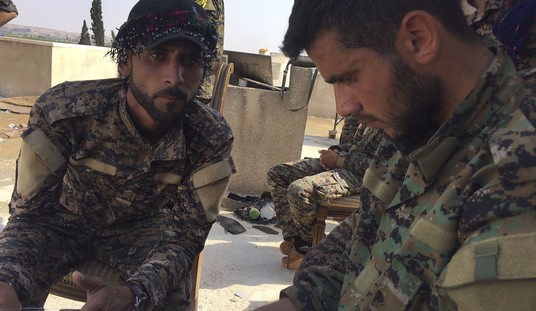You think once an issue is settled, it stays settled and people who tried before to turn a story into something it isn’t would learn a lesson. In the case of Michael Brown, that’s not going to happen.
Officer Darren Wilson shot and killed Michael Brown on August 9, 2014, in Ferguson, Missouri. It followed Brown’s robbery and assault at a nearby convenience store. The facts are simple, and the lies have been refuted by the evidence.
First, the lies. Brown was not shot in the back as some witnesses alleged. Three separate autopsies – county, independent, and federal – conducted said Brown was not shot in the back. The narrative of ‘Hands up, don’t shoot’ was spread by “civil rights” leaders and the media suggesting Wilson shot Brown despite the fact he was surrendering. The investigations turned up no evidence this happened. The witnesses lied. Two separate investigations including state and federal determined Wilson did nothing wrong. A young man was shot and killed by a police officer and tragic as it may be, there was no malice on the part of Wilson.
So knowing this, why on earth are there people saying evidence that Michael Brown was a drug dealer being used to justify his robbery and assault? Look at this tweet from Joy-Ann Reid:
Wow. New footage indicates Michael Brown was falsely accused of robbery in the store incident before he was killed. https://t.co/1pzoQya5hz
— Joy Reid (@JoyAnnReid) March 12, 2017
From the St. Louis Dispatch:
Citing previously unseen surveillance footage, a documentary that debuted Saturday at a popular film festival in Austin, Texas, claims that Michael Brown didn’t rob a Ferguson convenience store moments before he was fatally shot by police Aug. 9, 2014.
It instead asserts that Brown’s altercation with the shop was part of a misunderstanding tied to a possible drug transaction he had with store employees on a prior visit.
Filmmaker Jason Pollock argues that Brown first exchanged a small amount of marijuana with store clerks for two boxes of cigarillos in his early morning visit that day, according to a clip of the documentary included in a story by the New York Times.
At the last second before leaving the store, Brown gave the cigarillos back to the store clerks who put them behind the counter, according to the clip. The documentary asserts that Brown left the merchandise at the store to retrieve at a later point.
The NY Times, in its infinite wisdom, has the following headline:
New Ferguson Video Adds Wrinkle to Michael Brown Case
“Wrinkle.”
The NY Daily News headline offers a better summation:
New documentary about Michael Brown suggests Ferguson teen made drug deal before his death
What Joe Reid and others are now saying is, Brown taking the cigarillos at noon the following day was just him collecting on what he was owed for the pot he sold to the clerks. It’s insane, and there are three things to keep in mind here:
1. Saying Brown was a drug dealer, is not the best way to make a case for him – Why would anybody think this is a positive? Is this a narrative Joy-Ann Reid and others want to put forward?
2. The clerks didn’t have the authority to trade store product for drugs – There is nothing to suggest the clerks in the new video own the store. They have no standing to trade cigarillos for pot. Therefore, Michael Brown was still robbing the store.
3. Michael Brown still committed assault – No matter what the dispute was about, Brown’s action of grabbing the store clerk by the throat is still Brown committing a crime. That some are saying he did it because he felt he was owed the cigarillos as payment on a drug deal, is irrelevant.
If the media wants to go with, “Michael Brown was a drug dealer” as a narrative for “exonerating,” good luck with that. Stephen Miller makes a great point about it:
.@JayCaruso If Joy is so convinced of this she should be demanding answers from Eric Holder
— Stephen L. Miller (@redsteeze) March 12, 2017
Precisely.














Join the conversation as a VIP Member